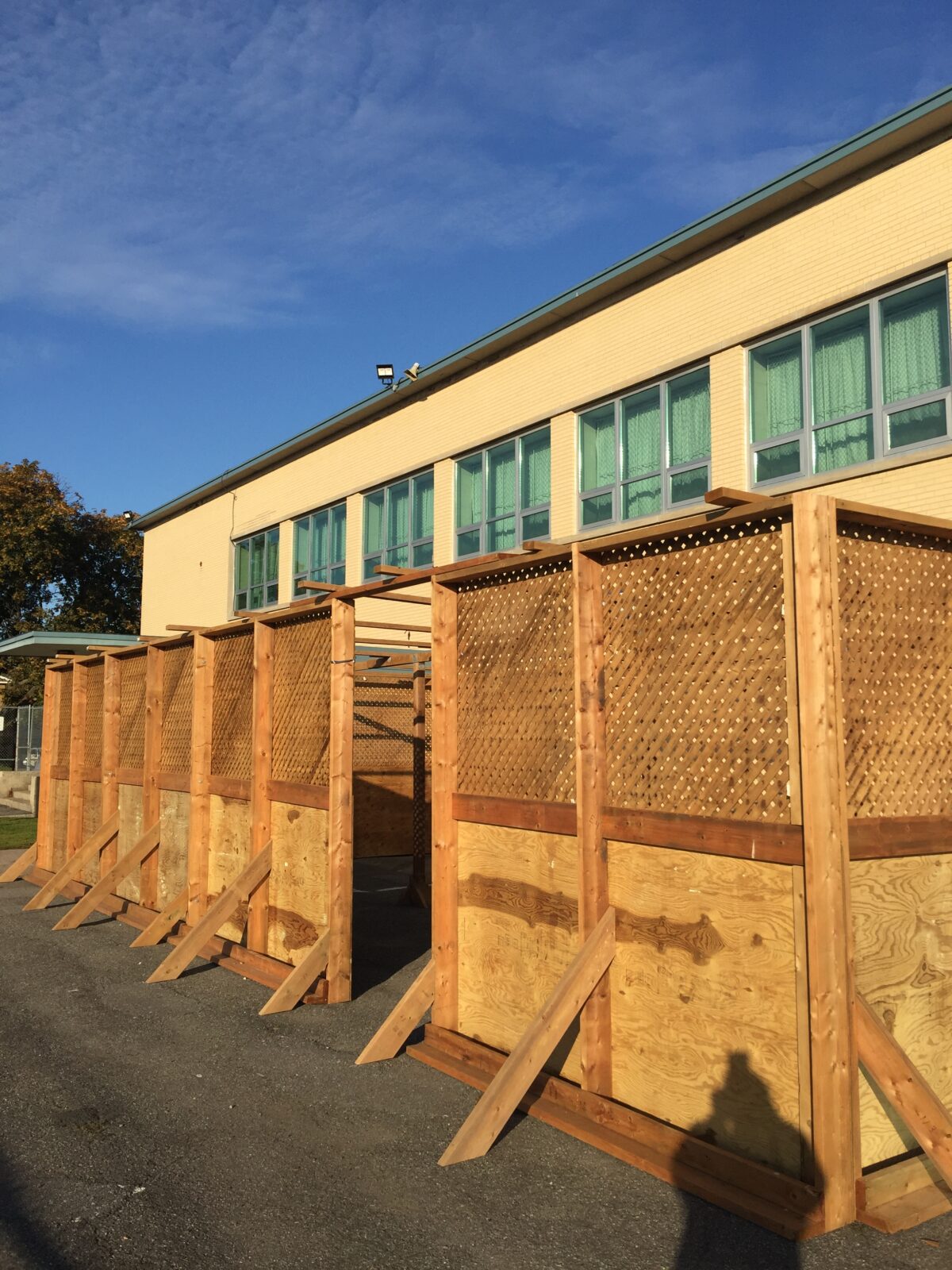I am not going to lie. (I mean, we just came out of Yom Kippur!) As much as I was able to find workarounds for a joyful Rosh HaShanah, and as much as I secretly enjoyed (that’s probably not the exact right word) Yom Kippur from home, I am already devastated by what will be a very different kind of Sukkot.
If you read my annual Sukkot post (or ever read it just once), you know that Sukkot is absolutely my favorite holiday of the entire year. There is nothing else like it on the Jewish Calendar – sitting outside in a sukkah you built yourself (which is pretty much the one and only thing I actually can and do build), with handmade decorations from your children (or their childhood), enjoying good food with friends and family in the night air, the citrusy smell of etrog lingering and mixing with verdant lulav – this is experiential Judaism at its finest.
COVID has not entirely rendered this part of the holiday moot. We did build a sukkah and it has all those visuals, smells and tastes. It remains an incredibly tactile holiday, which normally adds to its allure. But this year, of course, is complicated. Our inability to physically come together in close proximity makes it hard to invite guests into our (however porous) sukkot. It definitely makes sharing a lulav & etrog more complicated as well. (Do they make disinfectant for produce?) And even though I focus (in my posts) more on Sukkot than on Simchat Torah (which here in the Diaspora comes immediately afterwards), thereto, singing and dancing with the Torah will rightfully be verboten in 5781.
The calendar is also weird, right? I cannot recall a time where we have been in school for all five days of Chol Ha’moed (the Intermediate Days of) Sukkot. We both have the most time we have ever had to celebrate this time of great rejoicing and the least opportunity to actually do so!
We are still looking forward to celebrating this holiday at school. [By the way, it seems like whenever we discuss the timing of the fall Jewish holidays relative to the start of the school year, we always describe them as coming “early” or “late”. They don’t ever seem to come “on time”!] Great thanks to Morah Ruthie and all our Jewish Studies Faculty on their planning of COVID-friendly Sukkot activities that will be done in our cohorts during Jewish Studies time. We will do our best and even if it isn’t all that we would normally do, it will be what we can do.
It is the second half of this annual post that I am less capable and comfortable writing this year. Here is where I try to gently point out that if you had to pick just one (you don’t!) Jewish holiday for your children to experience on the Jewish Calendar, you would probably be well served choosing Sukkot (or Simchat Torah or Pesach or Shavuot) and not Yom Kippur. Or as I ask it each year, “When building your child’s library of Jewish memories, which memory feels more compelling and likely to resonate over time – sitting in starched clothes in sanctuary seats or relaxing with friends and family in an outdoor sukkah built with love and care?”
I know that I know what I think the answer is to that question, but part of why I ask it each year is that I don’t see that answer reflected in behavior. Meaning, the answer – to me – is obviously Sukkot, but Yom Kippur still wins out. (Again, you don’t have to pick just one.) The reason why I think that is true remains a fundamental lack of adult education (does everyone know how to celebrate Sukkot?) and of partnership (will someone help me learn how to celebrate Sukkot or help facilitate a Sukkot experience?). And my normal response to that is to offer up the school and its resources to be that partner in both education and experience. And in a pre-COVID world maybe that is as good as it can be…
This year, of course, is that different world. Rosh HaShanah and Yom Kippur, for many, if not most, were virtual or blended experiences. There were newfound frustrations in relying on technology or missed opportunities for the gathering of friends and family. There were newfound joys in creating new traditions and gatherings or including friends and families who live far away and who in a normal year would be missed. I know what worked well for me and my family and what didn’t, and I imagine that you do as well. And as I said above, for me it is Sukkot and Simchat Torah that is really going to feel less-than.
In the spirit of trying to turn etrogs into etrog-ade, for those for whom Sukkot’s exotic traditions create an annual barrier for participation, let me invite you to think of this year as an opportunity to pick one new tradition and experiment with in the comfort and (likely) seclusion of your sukkah or home. Shake a lulav and etrog. Eat in the sukkah (or in something sukkah-adjacent). Zoom a service. Dance with the Torah like nobody’s watching because nobody will be watching.
Let’s not let this holiday season end with self-denial and forgiveness – as important and meaningful as those things are. Let’s end with joy. From my family to yours: Chag sameach!



 assistance of our OJCS Sukkah [to be finished this today] (with great thanks to the Zaret Family & Gemstone), in which we look forward to eating, celebrating, shake-shake-shaking and hopping in as a school community when we resume school during Chol Ha’Moed next Wednesday. [By the way, it seems like whenever we discuss the timing of the fall Jewish holidays relative to the start of the school year, we always describe them as coming “early” or “late”. They don’t ever seem to come “on time”!] Great thanks to all our teachers for the hard work that goes into holiday preparation/celebration and keeping the normal routines of school moving forward as per usual.
assistance of our OJCS Sukkah [to be finished this today] (with great thanks to the Zaret Family & Gemstone), in which we look forward to eating, celebrating, shake-shake-shaking and hopping in as a school community when we resume school during Chol Ha’Moed next Wednesday. [By the way, it seems like whenever we discuss the timing of the fall Jewish holidays relative to the start of the school year, we always describe them as coming “early” or “late”. They don’t ever seem to come “on time”!] Great thanks to all our teachers for the hard work that goes into holiday preparation/celebration and keeping the normal routines of school moving forward as per usual.